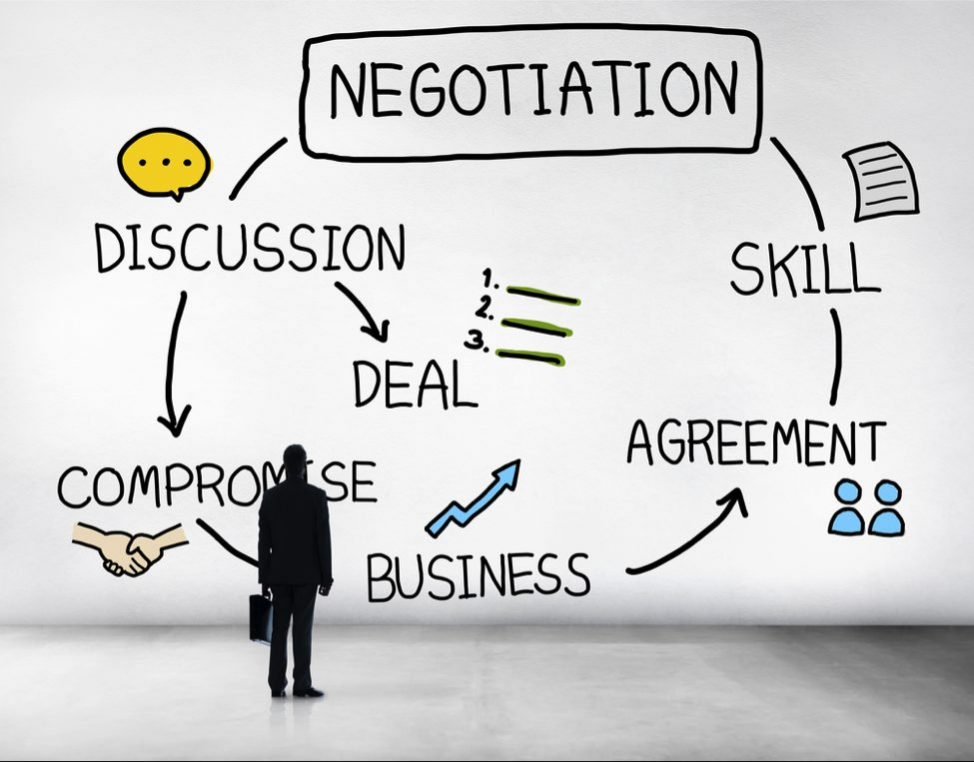Improving Negotiation Skills for Successful Business Deals
Negotiation skills are essential for business professionals across industries, enabling them to navigate deals, resolve conflicts, and achieve mutually beneficial agreements. Whether you’re negotiating with clients, suppliers, or partners, honing your negotiation prowess can significantly impact your business success. Here’s how to elevate your negotiation skills and maximize outcomes in every business deal.

1. Prepare Thoroughly Before Negotiations
Preparation is the foundation of effective negotiation. Begin by researching the other party’s interests, goals, and potential objections. Understand market trends, industry standards, and competitive benchmarks relevant to the negotiation. Clarify your own objectives, priorities, and acceptable outcomes. Anticipate possible scenarios and develop strategies to address various negotiation outcomes. The more prepared you are, the more confident and adaptable you’ll be during the negotiation process.
2. Cultivate Active Listening Skills
Effective negotiation involves active listening to understand the other party’s perspective, priorities, and underlying concerns. Listen attentively without interrupting, and ask clarifying questions to gain deeper insights into their needs and motivations. Paraphrase their statements to demonstrate understanding and build rapport. By actively listening, you can identify common ground, areas for compromise, and creative solutions that satisfy both parties’ interests.
3. Focus on Building Rapport and Trust
Establishing rapport and building trust is crucial for fostering a positive negotiation environment. Start conversations with friendly introductions and engage in small talk to establish a personal connection. Demonstrate integrity, honesty, and transparency throughout the negotiation process. Show empathy towards the other party’s perspectives and concerns. Building rapport creates a collaborative atmosphere where both parties feel valued and are more willing to explore mutually beneficial solutions.
4. Practice Effective Communication
Clear and concise communication is essential for conveying your message persuasively and articulating your value proposition. Clearly state your objectives, preferences, and expectations using straightforward language. Use positive language to frame proposals and avoid ambiguity or jargon that may confuse or alienate the other party. Maintain a professional demeanor and articulate your points confidently while respecting the other party’s viewpoints.
5. Develop Problem-Solving and Analytical Skills
Negotiation often involves problem-solving to overcome obstacles and reach agreement. Develop analytical skills to assess complex information, evaluate options, and predict potential outcomes. Identify underlying issues or barriers to agreement and propose innovative solutions that address both parties’ interests. Collaborate with the other party to brainstorm alternatives and explore win-win scenarios that maximize value and optimize outcomes for all stakeholders.
6. Remain Calm and Composed Under Pressure
Negotiation can be challenging, especially when faced with disagreement or unexpected challenges. Maintain composure and professionalism, even in high-pressure situations. Practice stress management techniques such as deep breathing or visualization to stay focused and resilient. Pause before responding to difficult questions or proposals to gather your thoughts and formulate a thoughtful response. By remaining calm, you can navigate negotiations effectively and preserve positive relationships.
7. Use Negotiation Tactics Strategically
Employ negotiation tactics and strategies to influence the negotiation process and achieve favorable outcomes. Consider tactics such as anchoring (setting the initial offer or terms), probing (asking strategic questions to gather information), and bundling (combining multiple issues or concessions). Adapt your approach based on the other party’s responses and negotiation style. Be mindful of ethical considerations and maintain fairness and respect throughout the negotiation.
8. Negotiate Win-Win Solutions
Strive to negotiate win-win solutions that create value for both parties and build long-term relationships. Focus on shared interests and mutual benefits rather than viewing negotiation as a zero-sum game. Explore trade-offs and concessions that satisfy key priorities while preserving essential interests. Collaborate creatively to expand the pie of potential outcomes, allowing both parties to achieve their objectives and feel satisfied with the final agreement.
9. Learn from Each Negotiation Experience
Reflect on each negotiation experience to identify strengths, areas for improvement, and lessons learned. Solicit feedback from colleagues, mentors, or trusted advisors to gain different perspectives on your negotiation approach. Continuously refine your negotiation skills based on feedback and insights gained from past experiences. Embrace a growth mindset and seek opportunities for professional development to enhance your expertise and effectiveness in future negotiations.
10. Embrace Continuous Learning and Adaptation
Negotiation is a dynamic process that requires continuous learning and adaptation to evolving business environments and market conditions. Stay informed about industry trends, regulatory changes, and emerging negotiation techniques. Attend workshops, seminars, or online courses to expand your knowledge and refine your negotiation toolkit. Adapt your strategies based on feedback, lessons learned, and the specific dynamics of each negotiation situation to achieve optimal outcomes consistently.
Elevate Your Negotiation Skills Today
By mastering these negotiation skills, you can enhance your ability to negotiate effectively, build stronger business relationships, and achieve successful outcomes in every deal. Preparation, active listening, effective communication, and a commitment to collaboration are key pillars of successful negotiation. Embrace these principles to navigate complexities, resolve conflicts, and capitalize on opportunities that drive business growth and innovation. Strengthen your negotiation skills today and empower yourself to excel in the competitive landscape of business negotiations.


